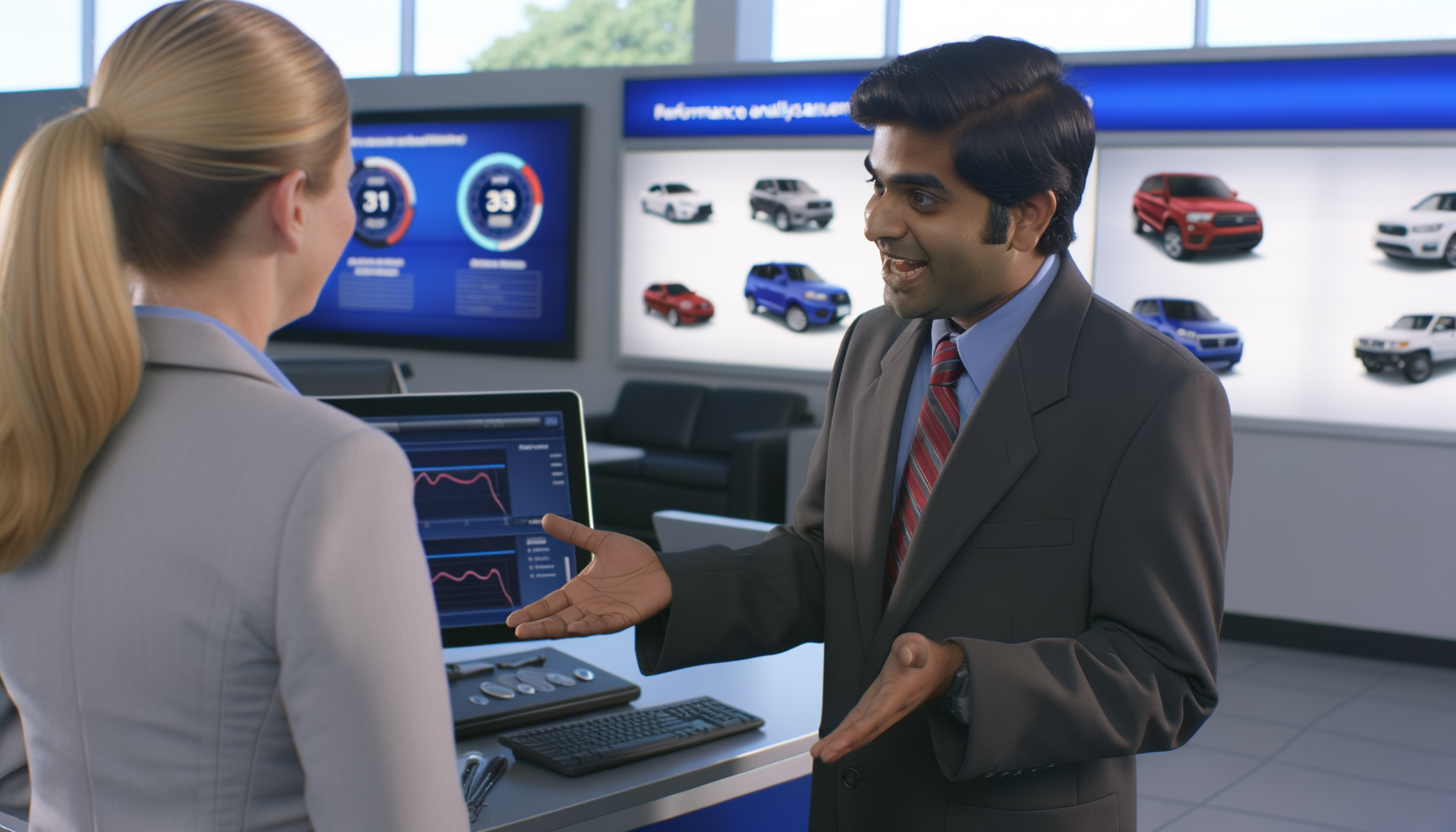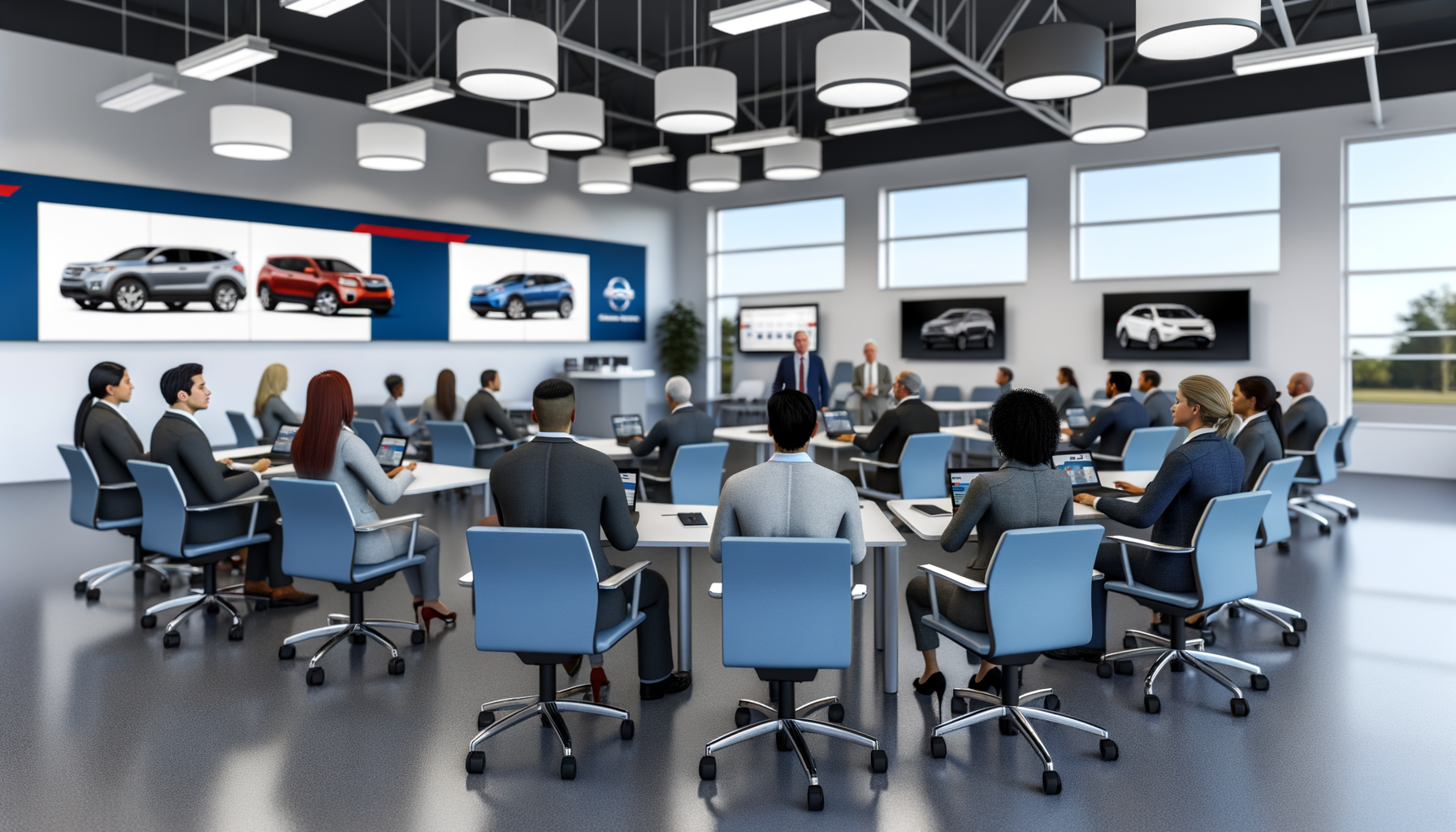Exceeding Expectations: The Modern Service Advisor's Guide to Automotive Excellence

The Strategic Importance of Service Advisor Training

Service advisors are the linchpin between the dealership and its customers, making their training crucial for maintaining client satisfaction and dealership profitability. As vehicles become more technologically advanced, advisors must possess both technical knowledge and exceptional communication skills.
A well-trained service advisor not only improves customer retention but also drives upselling opportunities. According to a 2025 industry study, dealerships that invested heavily in advisor training saw a 20% increase in customer satisfaction and a 15% rise in revenue.
To implement an effective training strategy, service managers should focus on developing comprehensive programs that integrate product knowledge, customer service excellence, and sales tactics. Consider collaborating with OEMs to stay aligned with the latest vehicle advancements.
Building a Tailored Training Program: Core Components

Creating a tailored training program requires an understanding of your team's specific needs. Begin with a skills assessment to identify areas for improvement and select appropriate training modules.
Consider incorporating role-playing scenarios and real-world problem solving to enhance learning. For example, simulate customer interactions using common service challenges like parts shortages or digital scheduling.
Implement a mentorship system where experienced advisors guide new recruits. This approach not only facilitates skill transfer but also fosters a supportive work environment that reduces turnover.
Leveraging Technology for Enhanced Training Outcomes

Integrating technology into training programs can significantly enhance engagement and retention. Utilize virtual reality (VR) and augmented reality (AR) tools to provide hands-on experience with new technologies, such as EV systems, without the need for physical vehicles.
Implement a digital learning management system (LMS) that tracks progress and offers tailored content based on individual performance. This data-driven approach allows for personalized learning paths and efficient knowledge reinforcement.
Service departments can also benefit from predictive analytics to anticipate training needs based on historical performance data. Such insights enable proactive adjustments to training curricula to address emerging trends.
Measuring Training Success with Key Performance Indicators

To evaluate the effectiveness of your training programs, establish clear KPIs that align with dealership goals. Consider metrics such as customer satisfaction scores, upsell rates, and service order completion times.
Regularly review these KPIs to identify trends and areas for improvement. A 2025 survey found that dealerships that constantly refined their training programs based on KPI feedback saw a 10% increase in service department efficiency.
Incorporate customer feedback as a qualitative measure of training success. Post-service surveys can provide insights into how well advisors are applying their training in real-world situations.
Overcoming Common Training Challenges

Service departments often face challenges such as high staff turnover and varying skill levels among advisors. Address turnover by creating a positive work culture and offering competitive compensation tied to performance.
Another challenge is keeping training content up-to-date with OEM requirements and technological advancements. Collaborate with manufacturers to receive the latest training materials and updates.
To ensure consistent training quality, consider automating parts of the training process with AI-driven platforms that provide adaptive learning experiences, ensuring every advisor meets the required competency levels.
Case Study: Transformative Training in Action

In 2025, a mid-sized dealership faced declining service department revenue and customer satisfaction scores. By overhauling their service advisor training program, they experienced remarkable improvements.
The dealership implemented an intensive 6-week training bootcamp focusing on digital tools and customer interaction strategies. As a result, customer satisfaction scores improved by 25%, and upsell rates increased by 30%.
This case underscores the importance of continuous training and the tangible benefits it can bring to dealerships striving to stay competitive in a rapidly evolving market.
Related Topics
Ready to take your service department to the next level?
Schedule your demo today and experience the power of Auto Pro Solutions.
Schedule Demo